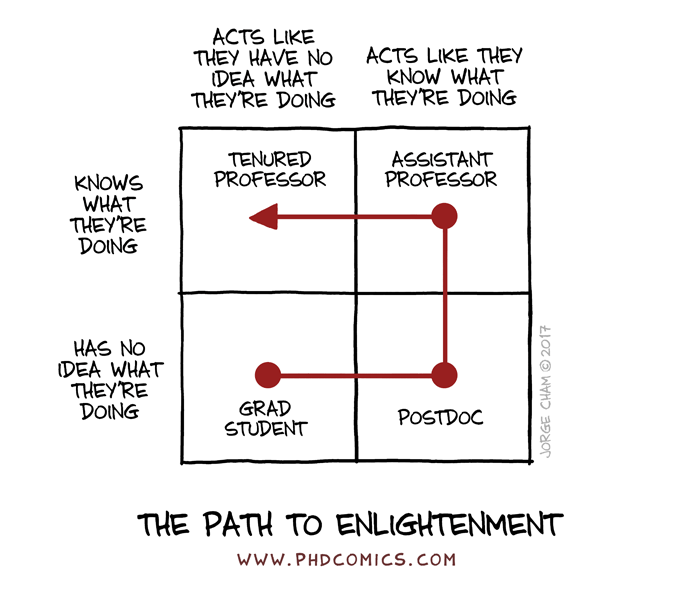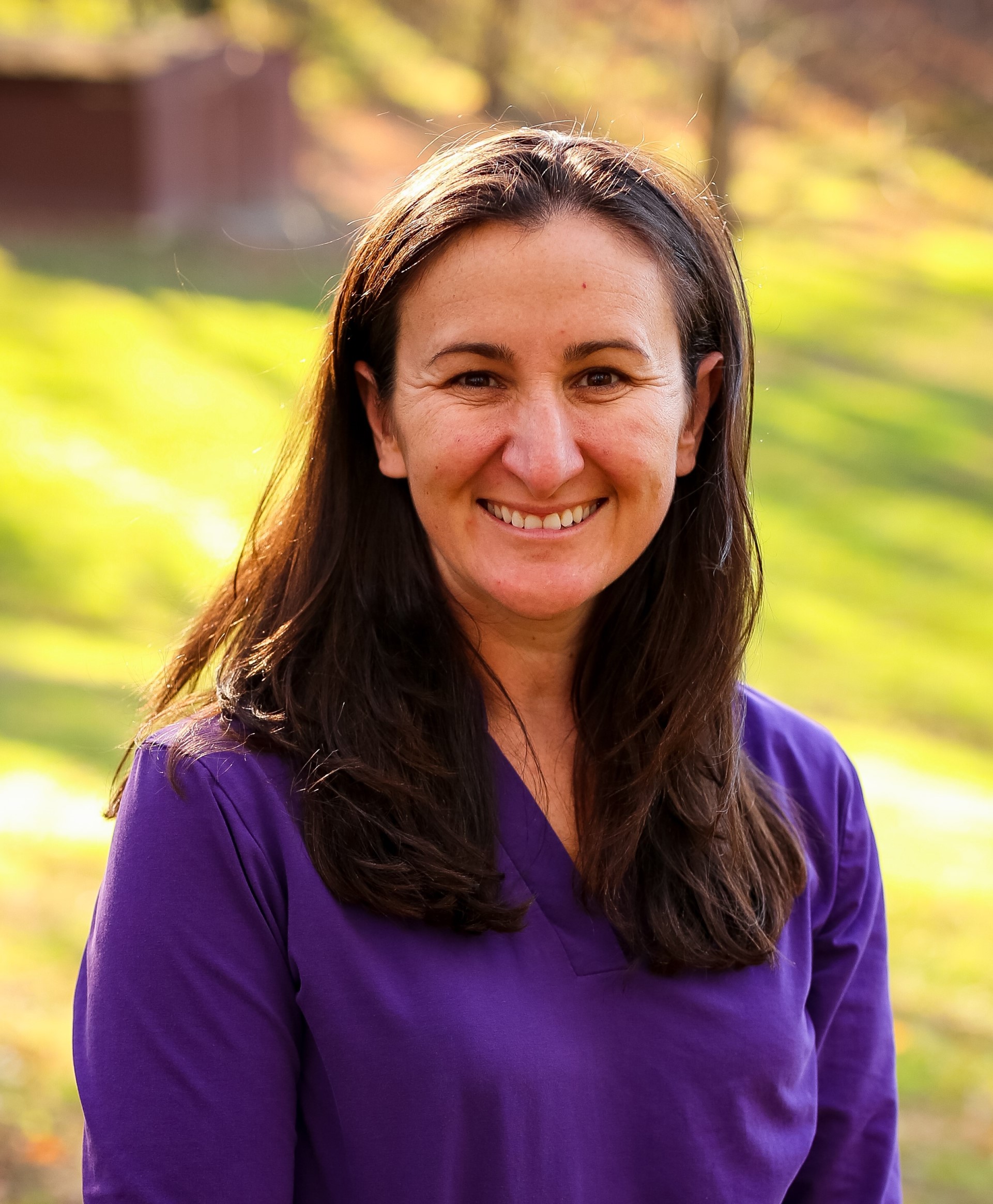Dr. Leslie Hiatt
Analytical and Instrumental Chemistry
Dr. Hiatt enjoys teaching students how to quantitate analytes and how to use instruments to analyze complex samples. She mainly teaches general chemistry, quantitative analysis, and instrumental analysis. General Chemistry is the first course a chemistry major takes and teaches students the basics needed in all levels chemistry. Quantitative Analysis teaches students how to develop good experimental protocols and then how to properly analyze data using numerical evidence. Instrumental Analysis builds on the skills developed in Quant to teach students how to use instruments to perform more advanced analysis of samples. The students in this course become experienced users of all the advanced instruments our department has to offer.
Advising: Dr. Hiatt advises chemistry majors and pre-pharmacy majors.
Collaborations: Dr. Hiatt's Instrumental Analysis and Data Analysis students have utilized Arduino devices to create instruments and analyze data. She has created a website to facilitate collaboration with other Analytical Chemistry professors who might be interested in collaborating on a study of these devices in teaching (2021-2022). This information is found on her personal website.
She loves working with students in the classroom and in the lab. Read below to find out about her research and to find out how you can become involved in undergraduate research!
Fun news story about the lighboard she made to improve video lectures! She also loves challenging her students through her Quant Escape Game or the Clue-like Murder Mystery she uses in Instrumental Analysis.
Dr. Hiatt's Schedule and Chemistry Department Events and Seminars
There is nothing more inspiring than a well done seminar. We hope some of the speakers this semester will inspire you. Please see the calendar below for scheduled office hours, seminars, activities, and outreach.
Join Drs. Hiatt and Chaparadza for a study abroad experience that will focus on bringing science education to Honduras. Learn how to conduct science demonstrations effectively and safely on campus before working with the Honduran students. Other service learning activities are planned.
- Check out the program overview with travel dates and costs here.
- Examine the draft itinerary that will be updated as we get closer to travel.
- Complete the Academic Advisor Form
- Apply on the program page and examine this document to see a suggested checklist to take part in this opportunity!
If any alumni are interested in donating toward this trip, you may give a gift to the Chemistry Department Fund of Excellence. Go to give.apsu.edu, select "View all Giving Opportunities" and then search for chemistry. Anything donated to the "Chemistry Alumni Scholarship" between October 2024 and February 2025 will go toward student's study abroad experience in Honduras!
We had an AMAZING Study Abroad Course in July 2022 in London! We learned all about how England contributed to health and science changes over the years while having a wonderful time. Looking forward to the next time I get to lead a study abroad course!

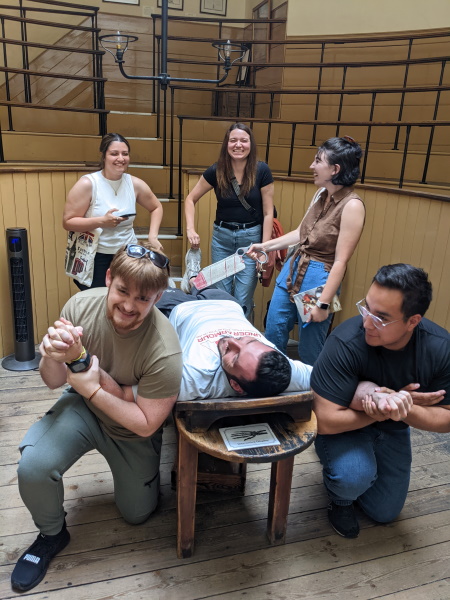
Electronic cigarettes are gaining popularity across the globe. Marketed as a helpful tool to aid smokers who wish to quit, electronic cigarettes deliver nicotine to users as a vapor without additional chemicals found in tobacco products. Currently, electronic cigarettes are not under the authority of the Food and Drug Administration, since they do not contain tobacco. Without regulation, not only is the effect of these cigarettes not known, the content of these products has not come under close analytical scrutiny. Our lab, in conjunction with Dr. Meagan Mann, are attempting to determine the nicotine content in electronic cigarettes. Can consumers trust the labels that describe the amount of nicotine in each liquid refill bottle? Does the content vary across batches? Does it change significantly over time and after the liquid’s expiration date? Our research utilizes electrochemistry and other instrumentation to answer these questions.
Carotenoids are organic pigments that occur naturally in plants and other photosynthetic organisms. When you see the beautiful oranges, reds, and yellows of fall foliage; you are seeing a few of the vibrant colors associated with carotenoids. Carotenoids have reversible electrochemistry and have shown an electrochromic response to changes in membrane potentials. The changes in absorbance already identified allow us to hypothesize that the characterization of carotenoids would lead to the identification of an electrochromic material suitable for incorporation into an electrochromic device such as an electronic reader.
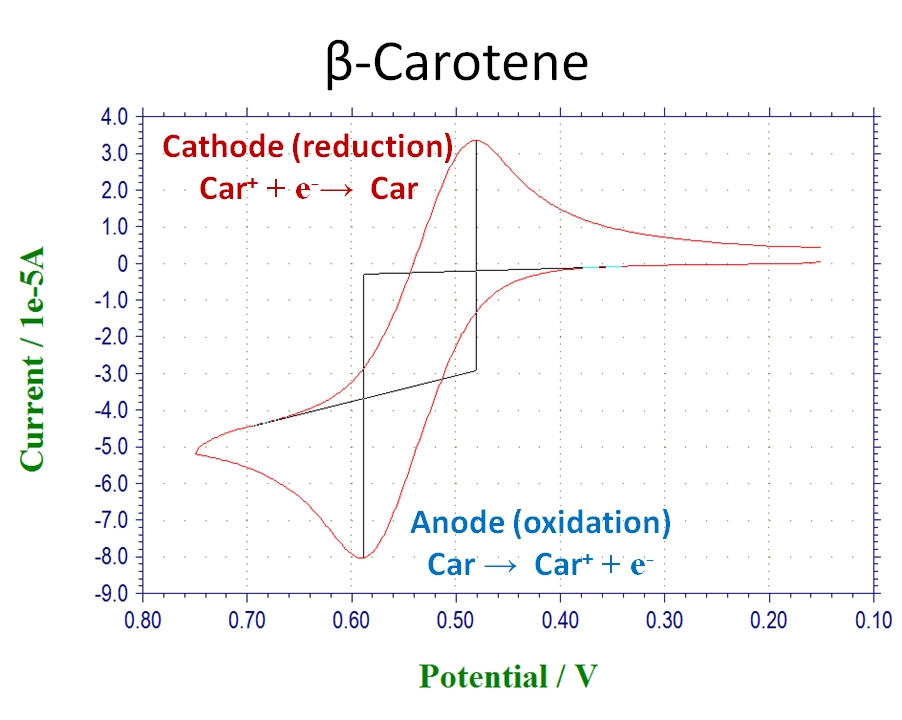
If you are a student who enjoys asking questions, inventing new ways to approach problems, and you would like to work on an exciting problem that involves chemistry, biology, electricity, and technology, drop by my office to discuss possible research options. This research is in the field of bioanalytical electrochemistry and has many facets.
- Hannah B. Musgrove, William M. Ward, Leslie A. Hiatt. “Escape from Quant Lab: Using Lab Skill Progression and a Final Project to Engage Students”. J. Chem. Educ. 2021, 98 (7), 2307–2312. DOI: 10.1021/acs.jchemed.1c00026.
- Parth H. Patel, Kristofer L. Conrad, Anuradha L. Pathiranage, Leslie A. Hiatt. “Practical Applications of Organic Chemistry: Improving Student Knowledge of GC−MS through Qualitative Analysis of Nicotine in Electronic Cigarette Vapors” J Chem Ed, 2020, 97(11), 4117–4122. DOI: 1021/acs.jchemed.0c00179.
- B. Pan, Macy L. Osborne, Autumn L. Maczko, Leslie A. Hiatt, Anuradha Liyana Pathiranage. "Utilizing HIV-1 Protease Inhibitor Drugs to Teach Drug Discovery and Molecular Modelling in the Organic Chemistry Lab" Chem. Educator. 2019, 24, 102-106.
- Jacob L. Williams, Taylor A. R. Oberman, Kristoffer L. Conrad, Martin E. Miller, Parth H. Patel, Meagan K. Mann, and Leslie A. Hiatt. “Inductive Data Analysis: A New Pedagogical Approach Using Simultaneous Methods of Quantitation” Educator 2018, 23, 179-185.
- Jacob Williams, Martin E. Miller, Brianna Avitabile, Dillon Burrow, Allison Schmittou, Meagan Mann, and Leslie Hiatt. “Teaching Students to be Instrumental in Analysis: Peer-Led Team Learning in the Instrumental Laboratory” J Chem Ed, 2017, 94(12), 1889-1895. DOI: 10.1021/acs.jchemed.7b00285.
- Danielle W. Kimmel, Mika E. Meschievitz, Leslie A. Hiatt, and David E. Cliffel. “Multianalyte Microphysiometry of Macrophage Responses to Phorbol Myristate Acetate, Lipopolysaccharide, and Lipoarabinomannan” Electroanal, 2013, 25, 1706-1712.
- Leslie A. Hiatt and David E. Cliffel. “Real time Recognition of Mycobacterium tuberculosis and Lipoarabinomannan using the Quartz Crystal Microbalance.” Sens Actuators, B, 2012, 174, 245-252.
- Reese S. Harry, Leslie A. Hiatt, Danielle W. Kimmel, Clare K. Carney, Kristin C. Halfpenny, David E. Cliffel and David W. Wright. “Metabolic Impact of 4-Hydroxynonenal on Macrophage-Like RAW 264.7 Function and Activation.” Chem Res Toxicol, 2012, 25, 1643-1651.
- Leslie A. Hiatt, Jennifer R. McKenzie, Leila F. Deravi, Reese S. Harry, David W. Wright, and David E. Cliffel. “A printed superoxide dismutase coated electrode for the study of macrophage oxidative burst.” Biosens Bioelectron, 2012, 33, 128-133.
- Scott A. Miller, Leslie A. Hiatt, Robert G. Keil, David E. Cliffel, and David W. Wright. “Multifunctional nanoparticles as simulants for a gravimetric immunoassay” Anal Bioanal Chem, 2011, 399, 1021-1029.
Search APSU's Periodical Database to access these articles
Feel free to drop by my office to read any of these if you wish.
I have had the BEST Research Students!
Here are some of my students this past year:
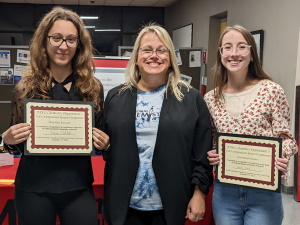
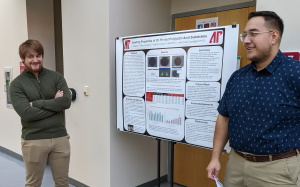
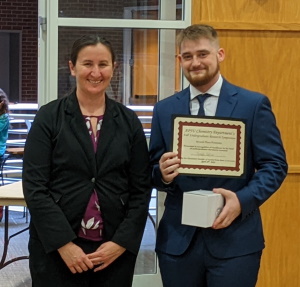
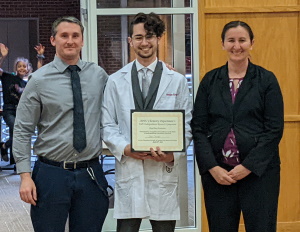
Brianna, Jake, Eric, and Dillon are all shown below presenting their research at the Fall 2015 APSU Chemistry Research Symposium. All these students are working on examining the nicotine in electronic cigarettes.
Fall 2016
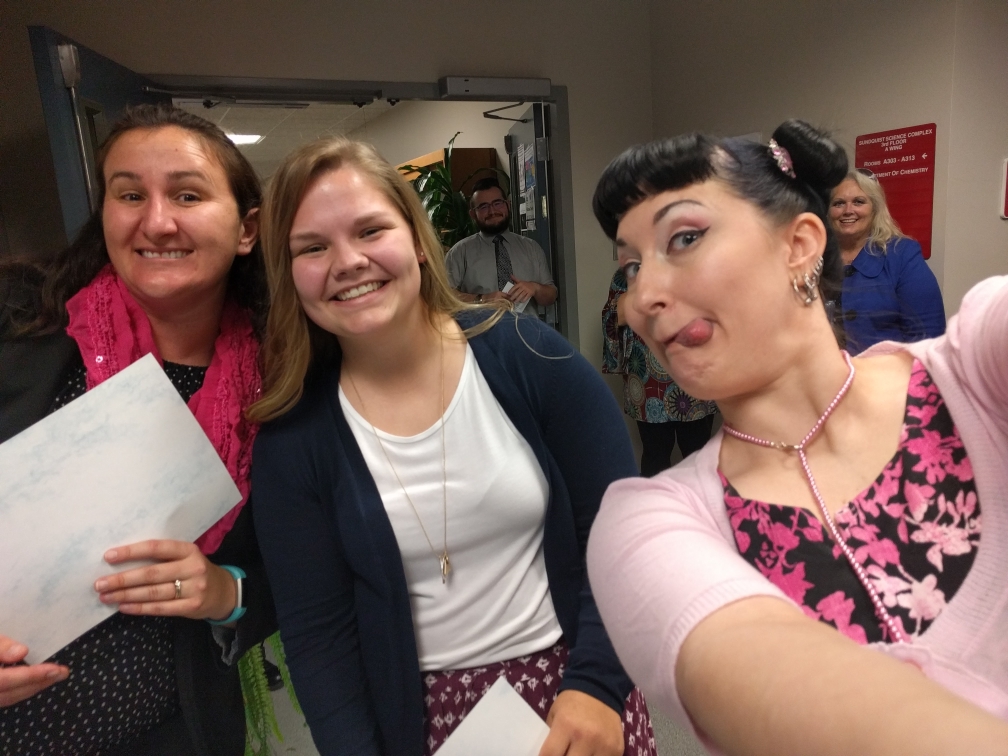
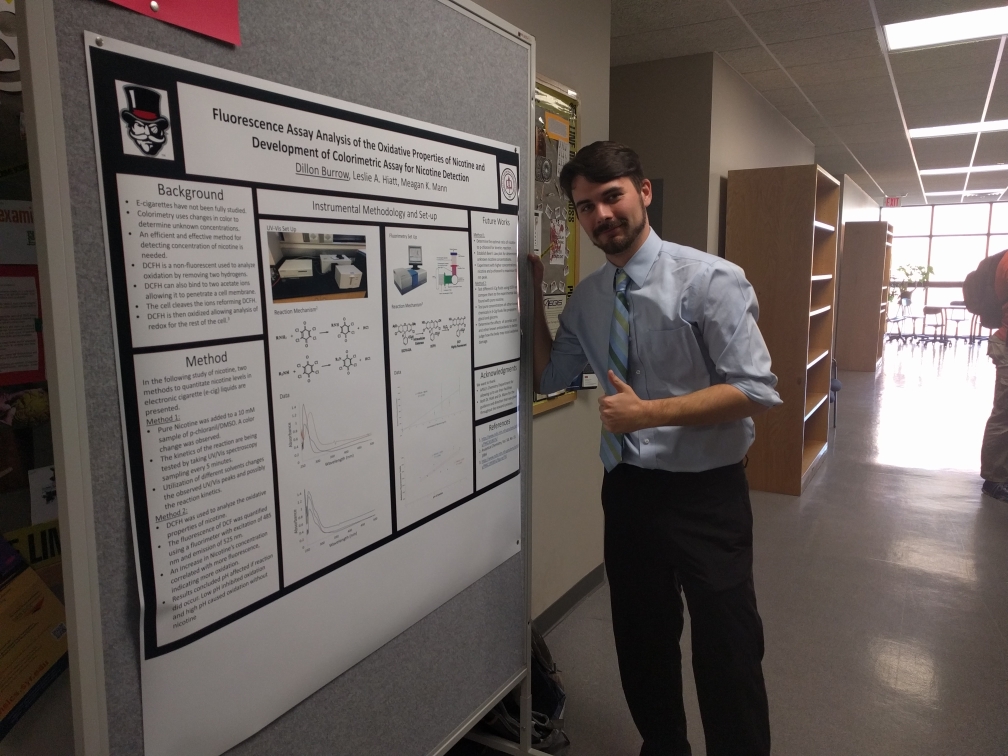
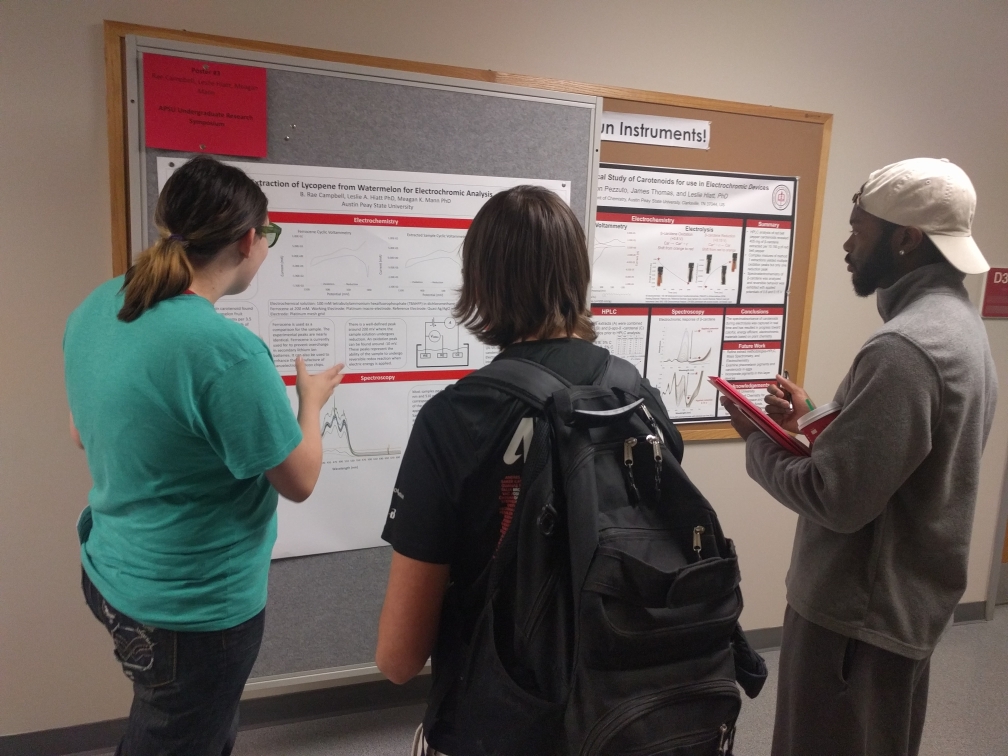
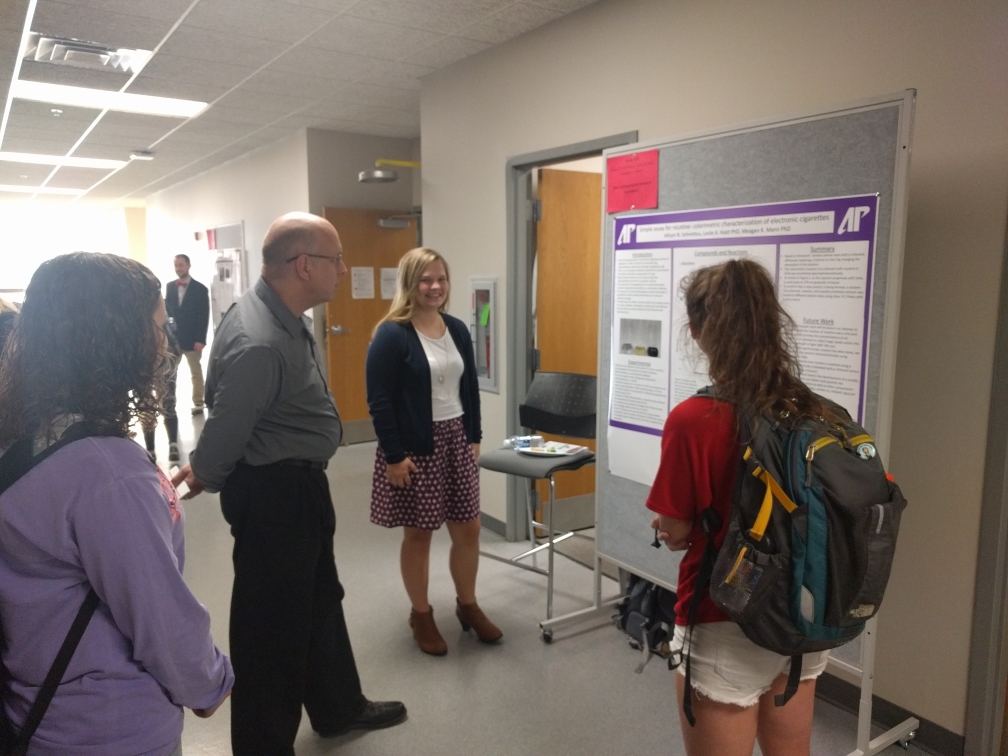
Fall 2015
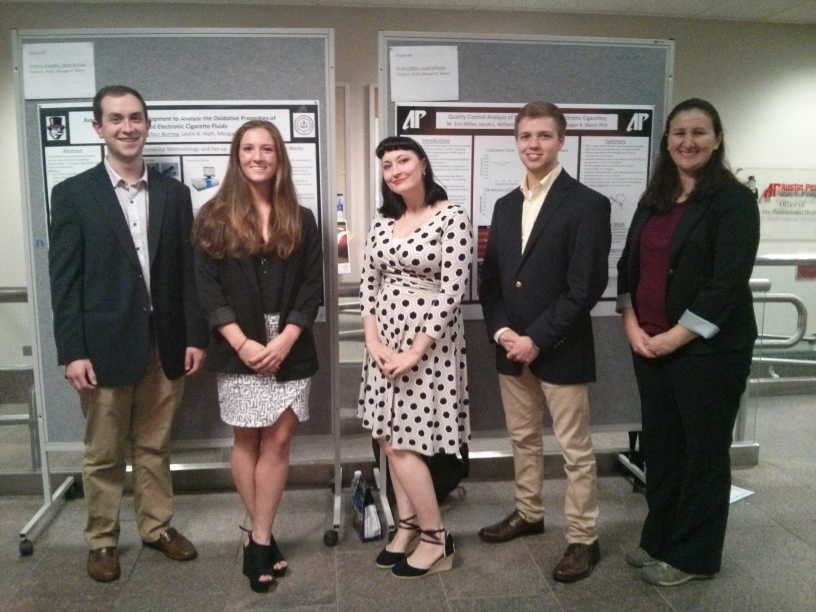
Fall 2014
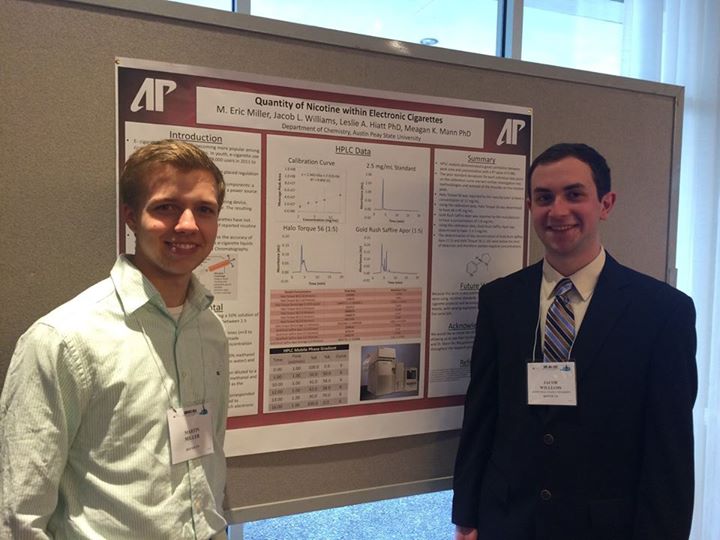
Jake Williams and Eric Miller are shown here presenting at 2014 SERMACS.
Past Research Students
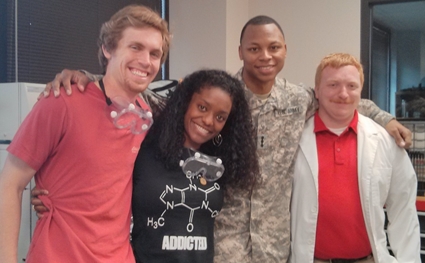
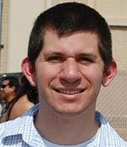
- Patrick Grady (Spring 2014)
- Lolita Hicks (Spring 2014)
- James Thomas (Fall 2013)
- Billy Cameron Denley (Spring 2013, Studying Medicine at the Uniformed Services University of the Health Sciences)
- Jonathon Pezzuto (Spring 2013, Lab Tech at Cerillant)
If you need a letter of recommendation, please download, fill out this form, and submit it via email to Dr. Hiatt, placing LOR in the subject line. hiattl@apsu.edu
May these links help you as you walk the path many chemists before you have trod.
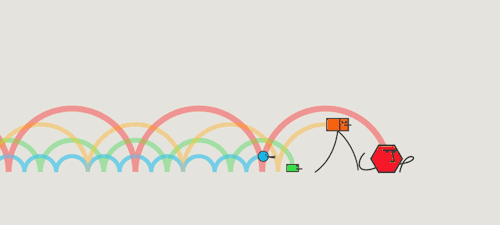
Pre-pharmacy Links:
This website identifies pharmacy school admission requirements and breaks these down by school and by requirement, pretty useful! Pharmacy School Admission Requirements
Applying for pharmacy school requires you to go throught the PharmCAS website. It helps if you are aware of the process even before you are ready to begin filling out the forms! PharmCAS system
APSU Course Requirements for Pre-Pharmacy with a BS in Chemistry
Class Specific:
My Data Class has used Data Camp to successfully learn more about the programming language R. The tutorials are top notch!
Educational:
Dropbox: Free cloud storage system
Professional Organizations:
Nashville ACS Local Section Calendar of Events
The Council on Undergraduate Research (CUR- Free for APSU Faculty & Students)
The American Chemical Society (ACS)
Tennessee Academy of Science (TAS)
The Electrochemical Society (ECS)
The Society for Electroanalytical Chemistry (SEAC)
Just for Fun:
